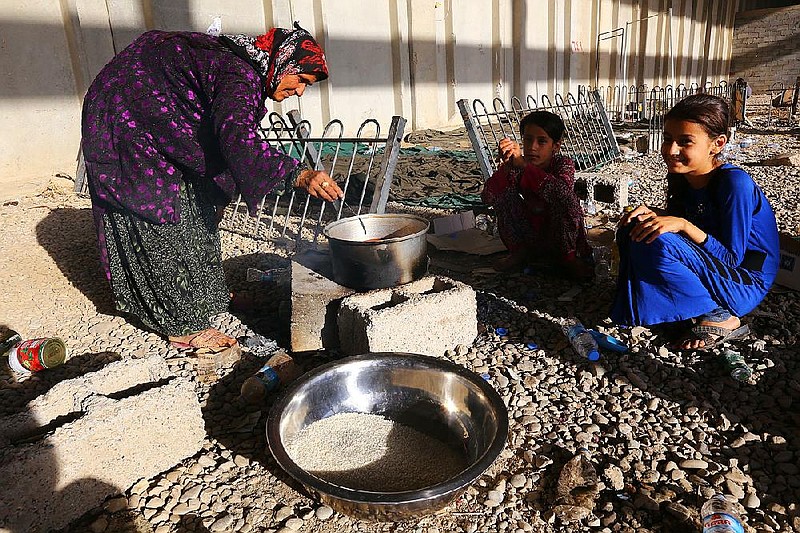Islamic extremism is fueling increasing public concern in nations with substantial Muslim populations, from Malaysia and Nigeria to Lebanon, according to an international poll.
As U.S. and other officials worry that the recent advances of the militant group that calls itself the Islamic State signal a rising tide of religious extremism, the poll suggests that many Muslims from Africa to East Asia share that concern.
"Lebanese, Tunisians, Egyptians, Jordanians and Turks are all more worried about the extremist threat than they were a year ago," the Pew Research Center found in the poll released last week, based on surveying 14,244 respondents in 14 countries.
The civil war in Syria has galvanized such worries throughout the Middle East, led by neighboring Lebanon, where 92 percent of the population expressed concern over extremism, up from 81 percent last year. The share of those somewhat or very concerned rose in Tunisia to 80 percent, from 71 percent in 2013; in Egypt to 75 percent from 69 percent; in Jordan to 62 percent from 54 percent; and in Turkey to 50 percent from 37 percent.
The poll was conducted from April 10 through May 25, before the Islamic State seized Iraq's northern city of Mosul and surged toward Baghdad in a crisis risking civil war. The group recently announced in a voice recording on the Internet that it was changing its name from the Islamic State in Iraq and the Levant.
Those polled had "very negative views of well-known extremist groups such as al-Qaeda, Hamas and Hezbollah," according to the survey results.
"In Asia, 66 percent in Bangladesh and 56 percent in Indonesia have negative opinions of al-Qaeda," the report found. "Roughly four in 10 in Pakistan and 32 percent in Malaysia also see the group unfavorably, but many in these countries offer no opinion."
In Nigeria, 82 percent of those polled held a very or somewhat unfavorable view of Boko Haram, which uses kidnappings and terror attacks in an effort to impose Islamic law on Africa's most populous nation, compared with 10 percent with a favorable opinion.
For all the concern and condemnation of extremist groups, the survey found signs of ambivalence as well.
While few of the Muslims surveyed in most countries said that suicide bombings or other forms of violence against civilians can be justified, such attacks were supported at least sometimes by 47 percent in Bangladesh and 46 percent in the Palestinian territories.
In Pakistan, 59 percent of those polled had an unfavorable view of the Taliban, compared with 8 percent holding a favorable opinion; a substantial 33 percent said they didn't know.
The margin of error for the in-person surveys varied by countries from plus-or-minus 3.7 percentage points to 4.5 percentage points. The Washington-based Pew Research Center is a subsidiary of Pew Charitable Trusts.
Religion on 07/12/2014
